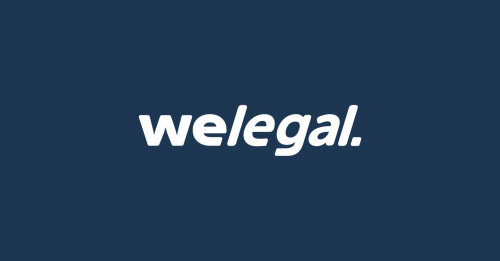Best Sanctions & Export Controls Lawyers in Vicente Lopez
Share your needs with us, get contacted by law firms.
Free. Takes 2 min.
List of the best lawyers in Vicente Lopez, Argentina
About Sanctions & Export Controls Law in Vicente Lopez, Argentina
Sanctions and export controls are legal frameworks that regulate what goods, technologies, services and payments can cross national borders - and to whom they can be supplied. In Vicente Lopez, a municipality in Greater Buenos Aires, the rules that apply are those of the national Argentine legal and regulatory system, and sometimes international measures adopted by Argentina. Local businesses, logistics operators, freight forwarders and individuals in Vicente Lopez must comply with national export control rules, customs law, foreign exchange controls and any international sanctions that Argentina has implemented.
Practically speaking, sanctions and export controls can cover a wide range of activities: export of dual-use or military items, transfer of technology, restrictions targeting specific countries or persons, controls on strategic raw materials, and rules governing cross-border payments. Compliance is a mix of preventive steps - classification, licensing and screening - and responding to audits, seizures or investigations by national authorities.
Why You May Need a Lawyer
A lawyer with experience in sanctions and export controls can help you manage legal risk, respond to government action and set up compliant commercial processes. Common situations where legal help is important include:
- Setting up or reviewing an export compliance program - policies, procedures, training and internal controls tailored to your business operations in Vicente Lopez.
- Classifying goods and technology to determine whether an export license or permit is required under Argentine or international rules.
- Preparing and submitting license applications or special authorizations to relevant national authorities.
- Responding to customs seizures, administrative fines, subpoenas or criminal investigations initiated by AFIP, Aduana, Banco Central or the Ministry of Foreign Affairs.
- Performing due diligence and screening of customers, suppliers, logistics partners and end-users to avoid prohibited transactions with sanctioned persons or jurisdictions.
- Negotiating contracts or drafting clauses that allocate responsibility for export control compliance, warranties, and indemnities.
- Advising on cross-border payments, foreign exchange restrictions and banking compliance when dealing with sanctioned jurisdictions or restricted transactions.
Local Laws Overview
Sanctions and export controls in Vicente Lopez are governed by national Argentine law and regulations issued by several agencies. The main elements that businesses and individuals should know include:
- National legal framework - Export and customs activity is regulated under Argentina's customs laws and foreign trade rules, together with regulations from the executive branch and administrative agencies. These laws establish duties, documentation requirements and controls over the movement of goods and technology.
- Regulatory authorities - Key national authorities include Administración Federal de Ingresos Públicos (AFIP) and its Dirección General de Aduanas for customs control; Banco Central de la República Argentina (BCRA) for foreign exchange and certain cross-border payment rules; the Ministerio de Desarrollo Productivo and its Secretaría de Comercio for export licensing and industry policy; and Ministerio de Relaciones Exteriores for the implementation of international sanctions.
- Nomenclature and classification - Argentina uses the Mercosur Common Nomenclature (NCM) derived from the Harmonized System for tariff and statistical classification. Proper classification affects licensing, duties and whether special controls apply.
- Dual-use and strategic goods - Exports of dual-use items, military goods, certain chemical or biological agents and technologies that could have national security implications are subject to stricter controls and often require specific export licenses or end-user statements.
- Sanctions implementation - Argentina implements UN Security Council measures and may adopt foreign measures through national decree or regulation. Compliance therefore can require screening against international lists as well as national prohibitions.
- Customs procedures and documentation - Exports and imports require accurate documentation, declarations to customs, and adherence to procedures for dispatch, storage and transit. Errors can lead to fines, delays and seizures.
- Penalties - Noncompliance can lead to administrative fines, confiscation of goods, suspension of customs privileges, civil liabilities and, in serious cases, criminal prosecution depending on intent and harm.
Frequently Asked Questions
What is the difference between sanctions and export controls?
Sanctions are prohibitions or restrictions targeting specific countries, entities or individuals - often adopted for foreign policy or security reasons. Export controls regulate the export of particular goods, technologies or services that may affect national security, public safety or non-proliferation goals. The two areas overlap - a sanctioned person may not be permitted to receive controlled exports.
Who enforces sanctions and export controls in Argentina?
Enforcement is primarily national. AFIP and Dirección General de Aduanas handle customs compliance and seizures. BCRA enforces foreign exchange and payment rules. The Ministry of Development and Secretaría de Comercio may handle export licensing, and the Ministry of Foreign Affairs implements international sanctions. Prosecutors and courts may be involved in criminal cases.
Do I need an export license for every international shipment?
No. Many routine commercial goods move without special licenses. However, items classified as military, dual-use, strategic or otherwise controlled will often require a license or authorization. Correct classification and review of national lists are essential before shipment.
How can a small business in Vicente Lopez screen customers and partners for sanctions risk?
Implement practical screening steps: collect full legal names, national ID or registration numbers, addresses and beneficial ownership information; check names against national and international sanctions lists; perform enhanced due diligence for high-risk jurisdictions; and document the checks. A lawyer can help set up proportionate policies and select screening tools.
What should I do if customs seizes a shipment?
Immediately document the seizure and gather all export documentation. Contact a lawyer experienced in customs and export controls and notify your customs broker. A lawyer can advise on administrative remedies, petitions for release, potential fines and whether a voluntary disclosure to authorities is appropriate.
Can I be criminally liable for export control or sanctions violations?
Yes. Depending on the facts, violations can lead to administrative penalties and, in serious cases involving willful conduct, criminal charges. Criminal risk increases where there is knowledge of wrongdoing, use of falsified documents, or deliberate attempts to evade controls.
Do Argentine businesses need to follow foreign sanctions like those from the United States or the European Union?
Argentine entities are legally bound by Argentine law. However, many multinational customers, banks and partners require compliance with US or EU sanctions as a condition of doing business. In practice this means Argentine businesses often need to consider foreign sanctions to maintain trade relationships and access to international banking and logistics services.
How long does it take to obtain an export license?
Timing varies by type of license, the agency involved and the complexity of the case. Some routine authorizations can be processed in weeks, while strategic or dual-use licenses involving multiple agencies can take months. Early planning and complete applications reduce delays.
What records should I keep to prove compliance?
Keep copies of export declarations, licenses and permits, commercial invoices, packing lists, bills of lading, end-user certificates, screening reports, internal compliance procedures, training records and communications with authorities. Maintain records for the period required by law and for defense in the event of an audit or investigation.
How can a lawyer help if I want to export sensitive technology or materials?
A lawyer can help classify the item, advise which licenses are required, prepare and submit license applications, draft end-user and destination control statements, design contractual protections, and liaise with authorities to resolve questions. Lawyers can also structure compliance steps to reduce legal and commercial risk.
Additional Resources
When seeking reliable guidance, consider consulting or monitoring the following Argentine institutions and organizations for authoritative information and regulatory guidance:
- Administración Federal de Ingresos Públicos - Dirección General de Aduanas (customs enforcement and procedures)
- Banco Central de la República Argentina (BCRA) for foreign exchange and cross-border payment rules
- Ministerio de Desarrollo Productivo and Secretaría de Comercio for export licensing and industry regulations
- Ministerio de Relaciones Exteriores, Comercio Internacional y Culto for international sanctions implementation and diplomatic policy
- Municipalidad de Vicente López - for local business registration, permits and municipal regulations that affect warehousing, transport and local operations
- Local chambers of commerce and industry associations in Greater Buenos Aires for practical guidance, training and networking
- International bodies whose measures Argentina may implement - United Nations Security Council and Mercosur policy instruments - for international sanctions lists and multilateral measures
Next Steps
If you think you need legal assistance with sanctions or export controls in Vicente Lopez, follow these practical steps:
- Identify and document the issue clearly - what goods or services are involved, destination country, counterparties, invoices and export documents. Prepare a factual timeline.
- Engage a lawyer experienced in Argentine export controls, customs law and sanctions. Ask about their experience with similar cases, government contacts and language capabilities if you need bilingual support.
- Prepare a list of questions and objectives for the first meeting - compliance program review, license application, administrative defense, or transaction structuring. Bring key documents to help the lawyer assess the situation.
- Evaluate remedial steps - voluntary disclosure, temporary holds on shipments, corrective compliance measures and staff training - guided by legal advice to minimize penalties and operational disruption.
- Implement practical controls - classification, customer screening, record keeping and contractual clauses - and schedule regular compliance reviews. A lawyer can draft or review policies and help train staff.
Getting timely legal advice can reduce enforcement risk and help you continue trade with confidence. If you operate from Vicente Lopez, prioritize proactive compliance and consult specialized counsel early when transactions involve strategic items, high-risk destinations or complex regulatory requirements.
Lawzana helps you find the best lawyers and law firms in Vicente Lopez through a curated and pre-screened list of qualified legal professionals. Our platform offers rankings and detailed profiles of attorneys and law firms, allowing you to compare based on practice areas, including Sanctions & Export Controls, experience, and client feedback.
Each profile includes a description of the firm's areas of practice, client reviews, team members and partners, year of establishment, spoken languages, office locations, contact information, social media presence, and any published articles or resources. Most firms on our platform speak English and are experienced in both local and international legal matters.
Get a quote from top-rated law firms in Vicente Lopez, Argentina — quickly, securely, and without unnecessary hassle.
Disclaimer:
The information provided on this page is for general informational purposes only and does not constitute legal advice. While we strive to ensure the accuracy and relevance of the content, legal information may change over time, and interpretations of the law can vary. You should always consult with a qualified legal professional for advice specific to your situation.
We disclaim all liability for actions taken or not taken based on the content of this page. If you believe any information is incorrect or outdated, please contact us, and we will review and update it where appropriate.









